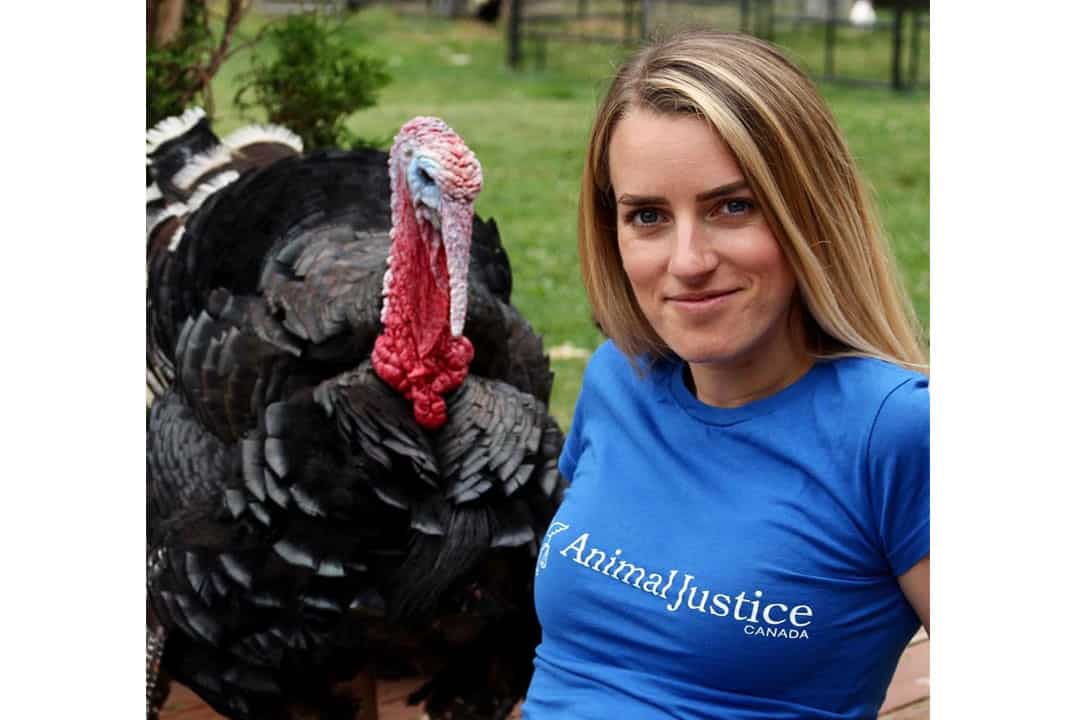The fourth annual Canadian Animal Law Conference took place at U of T from September 16 to September 18. Animal Justice, a non-profit animal rights advocacy group in Canada, organizes the conference each year. At the event, the non-profit seeks to facilitate various presentations and legal discussions on animal rights and advocacy between leading legal scholars in the field.
In 2020, the conference was supposed to be hosted at U of T, but Animal Justice shifted it to an online format due to the COVID-19 pandemic. As U of T and the province of Ontario eased their COVID-19 restrictions, the conference returned to its initial in-person delivery and to U of T.
In an interview with The Varsity, Animal Justice Executive Director Camille Labchuk discussed the organization’s work in animal rights advocacy, the objectives of the conference, and opportunities for student involvement. Labchuk also spoke about the organization’s relationship with the U of T Faculty of Law.
Animal Justice
As the only national animal law advocacy group in Canada, the primary goal of Animal Justice is improving legal protection for animals in Canada.
Labchuk believes that “the laws in the books for animals in Canada are extremely outdated and far behind many other developed countries.” To address this, Animal Justice attempts to provide effective legal representation for animals and pursues a revitalization of Canada’s animal protection laws.
In addition to Animal Justice’s work in formulating new laws on animal protection and lobbying for the laws’ implementation, the group also works to ensure that these protective laws, once implemented, are being enforced in Canada. The group also provides education programs and support for animal rights-focused clubs at law schools across the country.
Moreover, the group often collaborates with U of T. Labchuk remarked that U of T is “one of the leading centres for animal law” in Canada and, therefore, an important source of scholarly research into animal law.
The relationship between Animal Justice and the U of T Faculty of Law is partly facilitated by Angela Fernandez’s initiatives in animal law and involvement with Animal Justice. Fernandez is a professor at the Faculty of Law, whose research focuses on animal law.
Canadian Animal Law Conference
The 2022 conference is the fourth conference that Animal Justice has conducted and the first time it has been held at U of T.
Through the conference, the group aims to facilitate a weekend of collaboration and learning by inviting individuals from various disciplines and academic backgrounds to consider animal law in Canada.
Additionally, Animal Justice organizes the conference with hopes of providing students with an opportunity to learn about animal law.
Labchuk explained that “interest in animal law has just exploded in recent years” and the organization has “seen this growth of animal law clubs right across the country.”
Labchuk pointed out that “people are increasingly engaging with animals” and “[the lives of animals] cut across every aspect of [one’s daily life].” She specifically mentioned the production of clothes and the consumption of food as evidence of the integral role of animals in daily life.
Although Labchuk believes that many people support the idea of providing animals with better legal protection, a prominent problem still persists: “Our laws still don’t match up with societal expectations [of animal rights protection].”
Labchuk explained that it is up to the animal rights advocates to bridge this gap. She commented that “the animal law movement really has a big role in explaining [why animal-rights laws remain insufficient], and trying to convince politicians and even corporate actors to do better.”
U of T Faculty of Law
Labchuk also discussed her connection to the U of T Faculty of Law.
In 2011, U of T awarded Labchuk with a fellowship grant to join Animal Justice. Through her work at Animal Justice during her time at U of T, Labchuk was given many opportunities to conduct research in the animal law field. Labchuk also recalled working on projects to prevent animals from being exploited in experimental research.
Labchuk graduated from the U of T Faculty of Law in 2012. She explained that the reason she had chosen the school was due to the established history of animal law at U of T.
“One great thing about U of T is that the university has always been really supportive of animal law,” said Labchuk. She believes that U of T has been so well integrated into the animal rights movement in Canada that “most of the people involved in animal law… have gone through U of T at some point.”
Student opportunities
On the topic of increasing student engagement with the organization, Labchuk advised students interested in animal law to start “small” and “locally.” She recommended that students join existing Animal Justice clubs at any Canadian university and explained that the group provides support to these clubs through grants of up to $500 per year.
The Animal Justice club at U of T provides members with a variety of engagement opportunities in the field of animal law, including annual networking events, opportunities for case work experience, and events with guest speakers from the field.
Animal Justice also offers various opportunities for participation to students pursuing law degrees at Canadian universities. During the summer, Animal Justice has numerous paid employment positions suitable for students. Throughout the academic year, the group organizes the “Pro Bono Students Canada” program, which aids students interested in animal law by matching them to volunteer positions within existing animal rights organizations in Canada.
Labchuk encouraged people to volunteer for any animal protection group, emphasizing that even an individual “can do quite a lot of important work.” Labchuk affirmed that participating in animal rights campaigns, raising awareness of animal rights issues, or even convincing postsecondary schools to increase plant-based food offerings on campus, are all methods that constitute important work in the pursuit of effective animal rights law in Canada.


